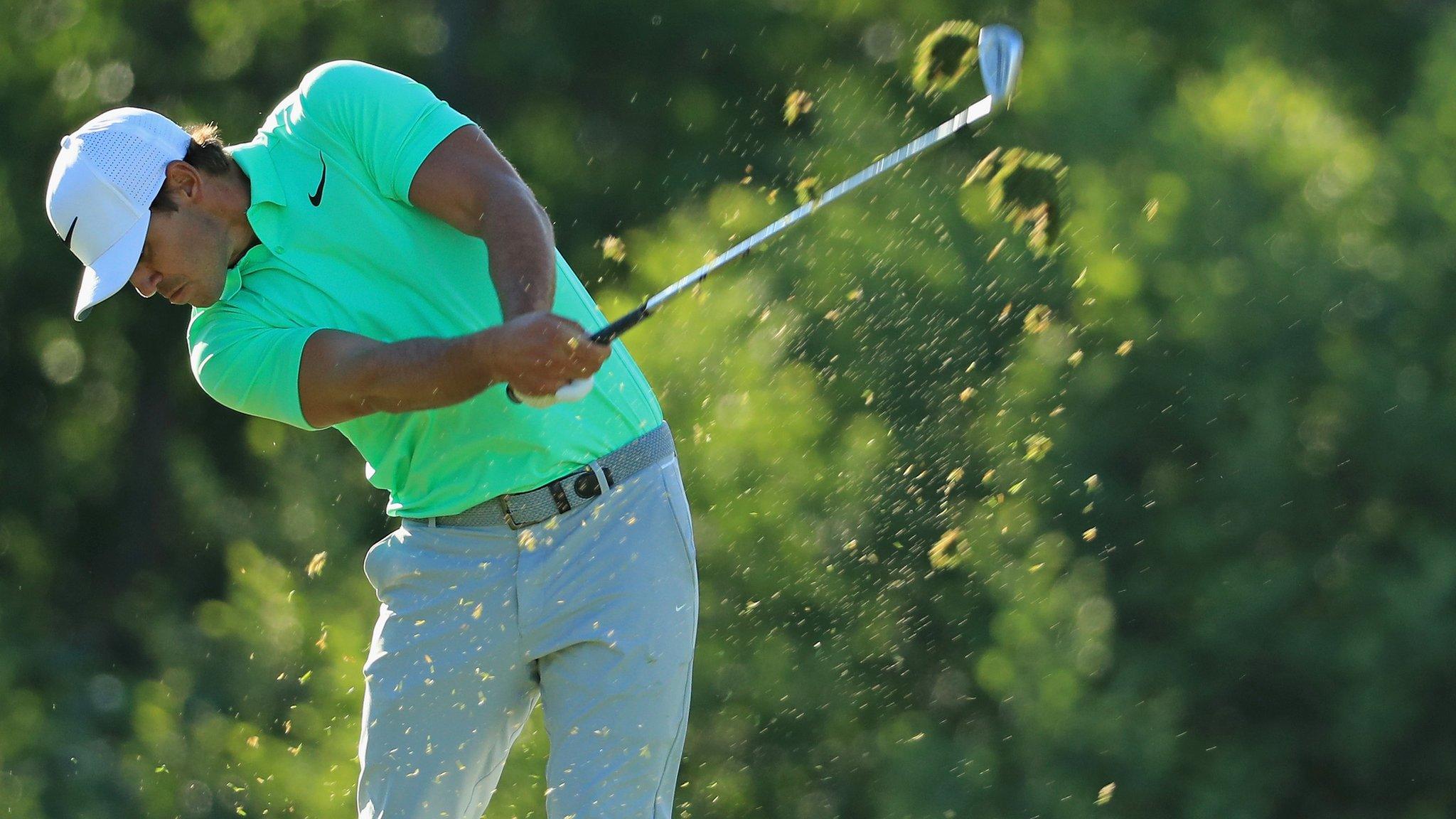PGA Tour: New doping programme to blood-test and name recreational drug users
- Published

The PGA Tour schedules some of the biggest events in the USA
The PGA Tour is to introduce blood-testing next season and will align its list of prohibited substances with that of the World Anti-Doping Agency (Wada).
The Tour will still use urine testing as an anti-doping measure, with blood testing intended to detect substances such as human growth hormone.
Commissioner Jay Monahan said the move would "better substantiate the integrity of golf as a clean sport".
Suspensions due to recreational drug use will also now be reported.
Currently, misdemeanours related to recreational drugs are kept confidential but this will no longer be the case as part of widespread changes in policy for the 2017-18 season, starting later this year.
The PGA Tour provides the week-to-week competitions for many of the world's top golfers who base themselves in the US, while the European Tour does so in Europe.
It has operated its own anti-doping programme since 2008 and consulted with both Wada and US Anti-Doping in putting it together.
But its banned list differed to the Wada code in three categories, relating to asthma medications, allergy and anti-inflammatory medications.
Wada's figures for 2015 showed that golf carried out the fewest drugs test - 417 - of any summer Olympics discipline.
The International Olympic Committee urged the PGA Tour to adopt fully Wada's code before the sport's return to the Olympics in 2016, where players were subject to blood testing.
- Published20 June 2017

- Published19 June 2017

- Published19 June 2017
